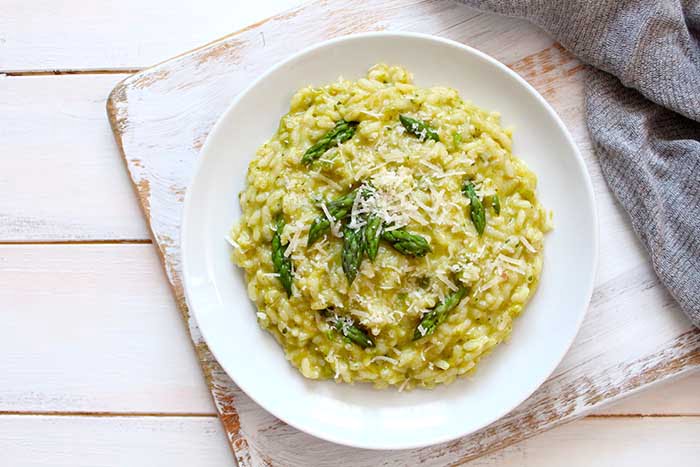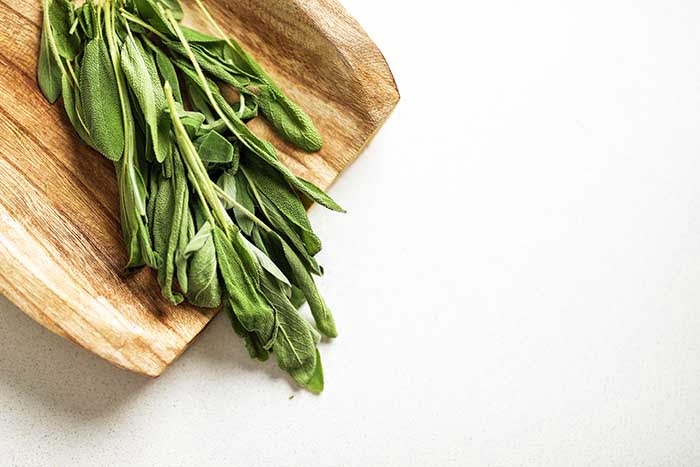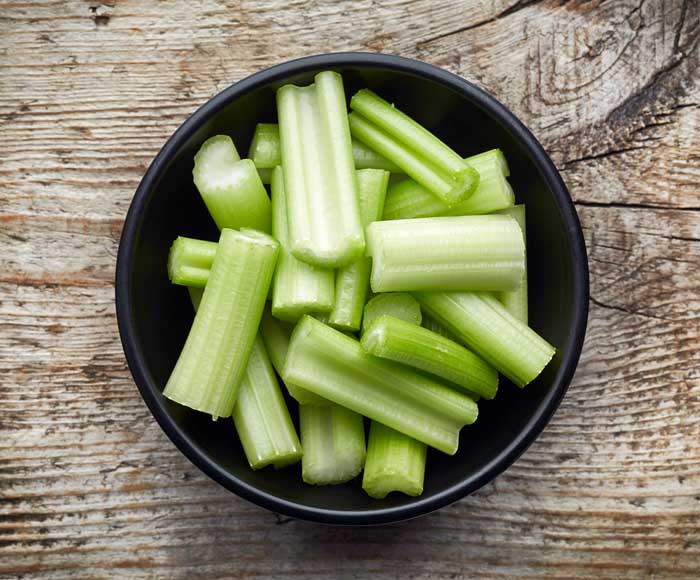Need a ground cloves substitute? We have you covered. These quick ingredient substitutes and alternatives will get you out of trouble.
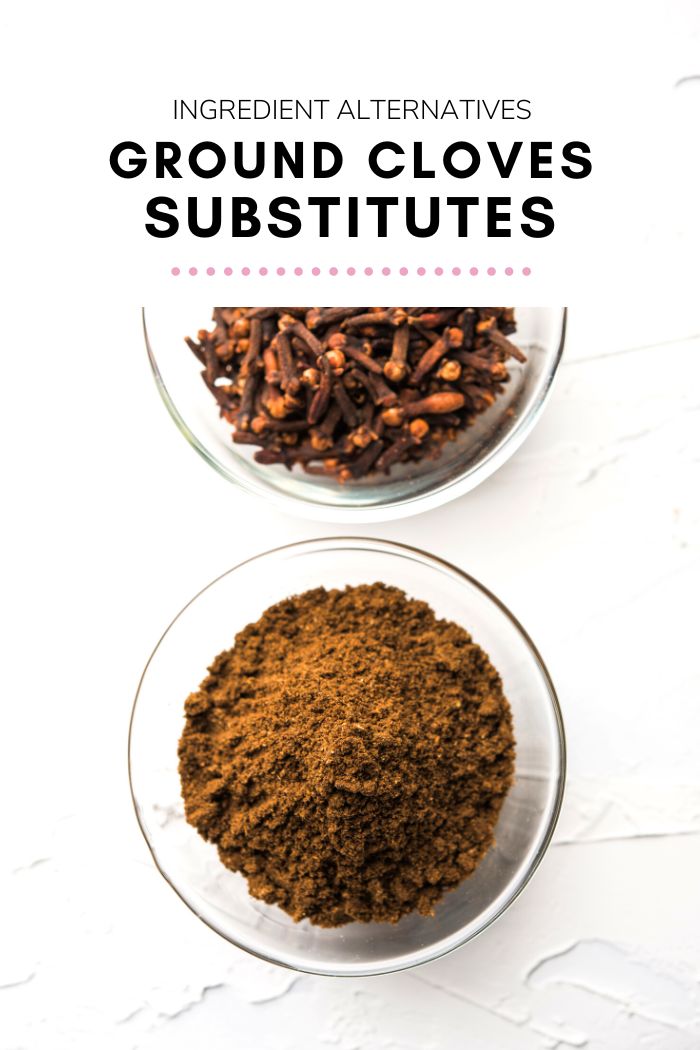
Ground cloves are a typically holiday-centric ingredient. Often an ingredient in desserts, sweet dishes, or beverages, they’re an easy-to-use and relatively cheap ingredient to get your hands on.
In most uses, and especially with baking, cloves are favored for the “warm” and almost-cozy essence they give a dish. Many prefer using them for mulled wines, pumpkin pies, and other autumnal and wintery dishes. Not having cloves can make these dishes feel more one-note or flat.
Unfortunately, not everyone has a taste for cloves, and an allergy to them isn’t uncommon. Because of this, it’s good to know what you can use in your recipes instead of cloves.
Depending on the recipe, the best substitutions for cloves are nutmeg or cinnamon. For example, a stick of cinnamon can take the place of ground cloves in many beverages. In many cases, allspice, star anise, cardamom, five-spice powder, and peppercorns are also excellent substitutions. Read on to learn more about the use cases for these substitutions.
Understanding what you can use ground cloves for will help you see how to substitute the ingredient. Here are some of the most common and effective substitutions for ground cloves in cooking.
Allspice
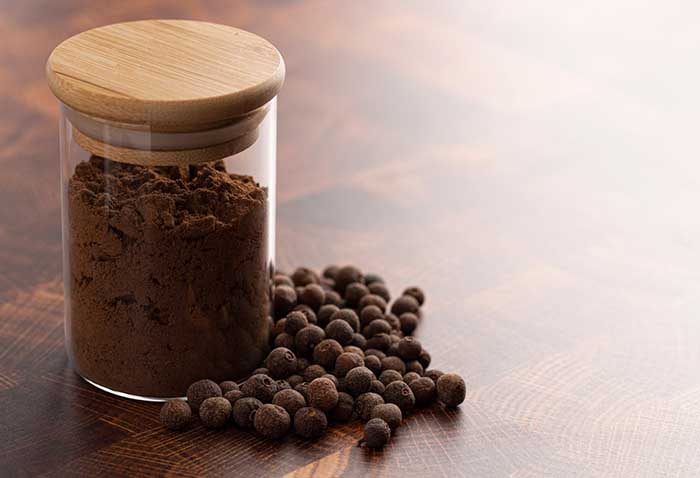
Allspice is one of the most common substitutions for ground cloves. Also called pimento, myrtle pepper, or Jamaica pepper, allspice comes from the pimenta dioica tree. Specifically, it is the unripe fruit from the tree and is native to many regions of Central America and the West Indies.
Allspice is an excellent substitution for cloves in nearly all situations. Generally, you can use allspice in any recipe that calls for cloves. It’s a warm spice with a near-identical flavor profile to ground cloves, albeit slightly less “warm.”
When substituting ground allspice for ground cloves, you can use a 1:1 ratio. The flavor profile is slightly sweet, though not considerably sweeter than cloves. It also has a warm, subtly peppery flavor and a comforting aroma.
Cinnamon
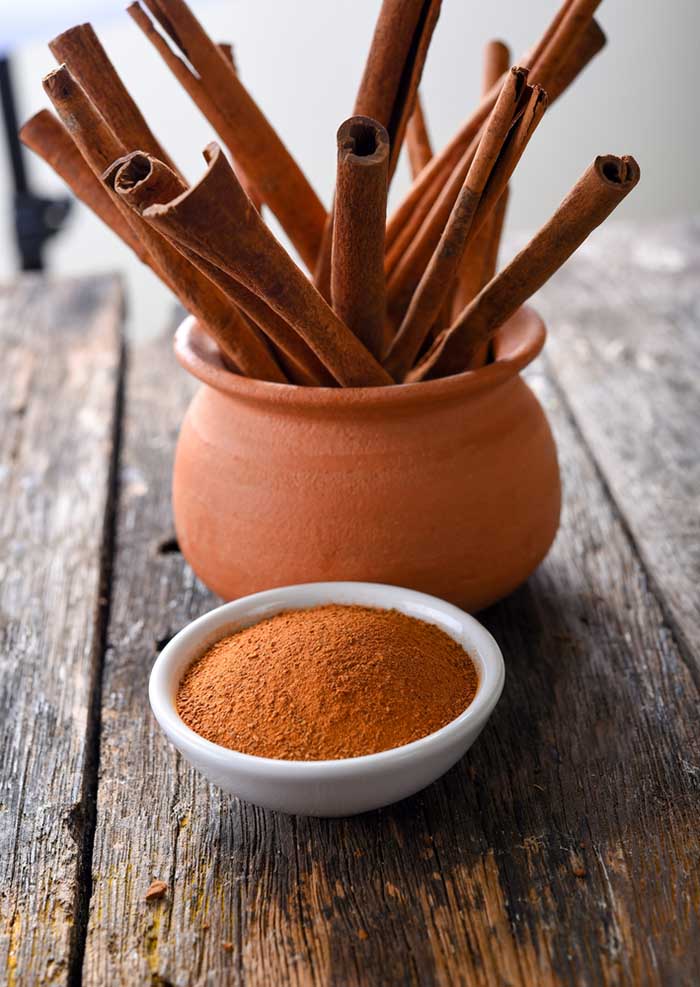
Cinnamon is another common spice to replace ground cloves, but not one that matches the profile as well as allspice. Cinnamon is a spice from the inner bark of multiple trees in the Cinnamomum genus. The inner bark is dried and commonly ground, though you can usually find it in rolled-up cinnamon sticks, as well.
The flavor profile of cinnamon is less sweet than cloves. Because of that, you’ll rarely replace it in equal amounts. Instead, you should add other ingredients with the cinnamon to compensate for that lack of sweetness, such as sugar, brown sugar, nutmeg, and the like.
Cinnamon can replace allspice in beverages and recipes, especially baking recipes. However, the flavor profile is warmer with a hint of spice, making it not as good of a replacement when “unprepared,” such as sprinkled on top of something.
Nutmeg

Nutmeg is another highly-common ingredient to replace ground cloves and an ingredient you’ll frequently find in the same recipes. Cloves, cinnamon, and nutmeg are all commonly used together and mesh well, making them natural replacements for each other. Nutmeg is the seed or ground spice of multiple species of trees in the genus Myristica.
As nutmeg is used in many of the same recipes as cloves, you can often replace it in a 1:1 ratio, as you would with allspice. However, the flavor profile is nuttier and slightly sweeter, so you may want to dial it back slightly. Due to this, you can consider nutmeg safe to add to your tastes rather than by recipe.
Whether baking, cooking or making a beverage, nutmeg can typically be used anywhere cloves can. The flavor profile isn’t an exact replica, so be careful you don’t make your recipe too nutty tasting! Nutmeg has a strong taste, so overdoing it is easy.
Nutmeg also requires no other ingredients to be added along with it. It’s a perfect swap for ground cloves anywhere in the recipe. If you want to add something else along with it, consider adding cinnamon, star anise, or a small number of peppercorns.
Mace
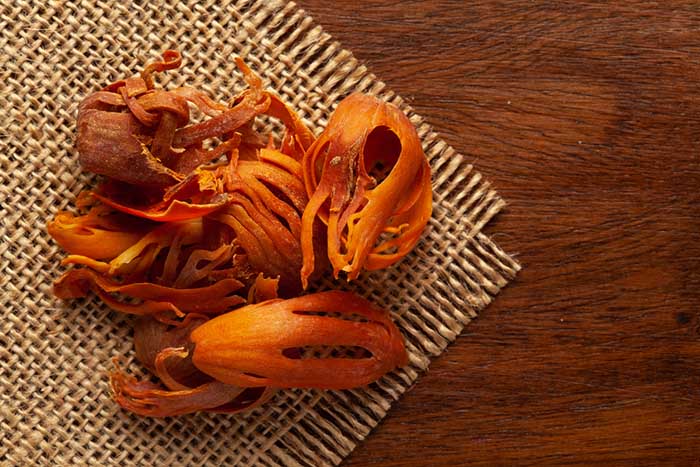
Produced from the red, lacy coating of a nutmeg seed, Mace is a spice that you can buy ground or in dried blades. It generally has a yellowish-brown color and is quite aromatic. It has a woody and warm flavor, similar to nutmeg since they come from the same plant but are not as sweet.
Mace is a suitable replacement for clove in many recipes as they have a similar, robust flavor profile. As with nutmeg and allspice, you can replace cloves with mace at a 1:1 ratio. It is best used as a clove substitute in baking, like pumpkin pie or gingerbread cookies.
Cardamom
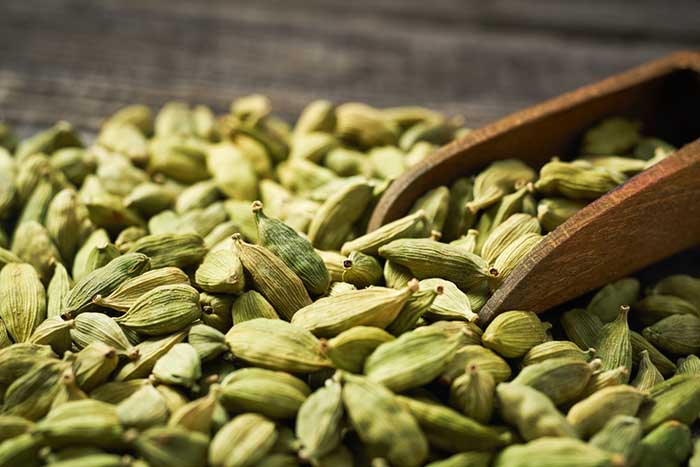
Cardamom, the seeds of some plants in the ginger family (both in the Elettaria and Amomum genera), is popular in Southeast Asia. Both of these plants are native to Indonesia and many areas of the Indian subcontinent.
Unlike allspice and nutmeg, cardamom has a substantially different flavor profile from cloves. Cardamom has a citrusy flavor reminiscent of dried orange peel and an herbaceousness similar to star anise. Because of this, it’s more common in savory dishes. You might find plenty of uses in sweet dishes, but you’ll rarely see cardamom-focused beverages.
Combine cardamom with nutmeg when replacing cloves to counter the herbal and citrus flavors. You also may want to add some amount of cinnamon to add warmth.
White or Black Peppercorns
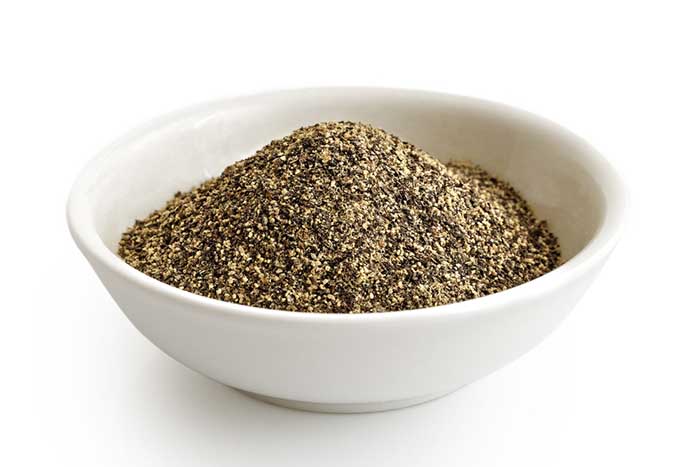
Both peppercorns are from the same plant, piper nigrum, and are the dried berries of the Indian-native plant. Black peppercorns are picked when nearly ripe and sun-dried, giving them the color. White peppercorns have the outer layer removed. As a result, they are spicier but less complex.
Peppercorns are not a perfect substitution for cloves, especially given that both peppercorns have different flavors. However, you can use a small amount of peppercorn to provide warmth and spice, especially in savory recipes where that heat would be welcome. In cooking, you’ll want to combine nutmeg and allspice to round out the flavors and cut the heat.
Do not use an exact substitution ratio in drinks, as this will likely lead to a spicier-than-desired beverage. Instead, combine with cinnamon, nutmeg, or allspice. Using ground peppercorn as a garnish can emphasize the spice more than most recipes may want, harming the flavor profile.
Star Anise
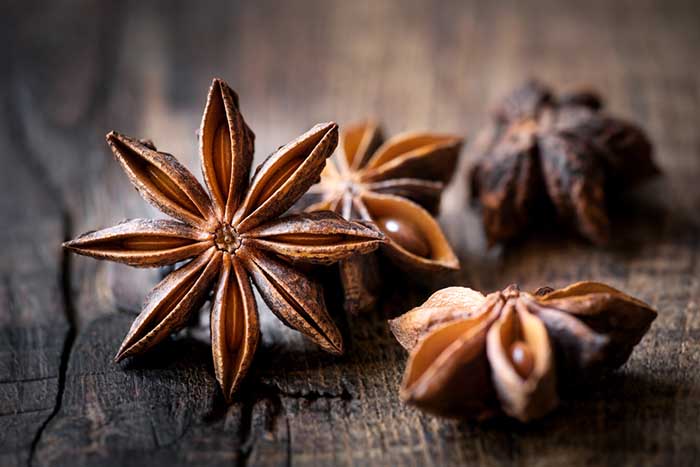
Star anise is the seed pod of the fruit of the Vietnamese and Chinese Illicium verum tree. The seed pods have a starlike shape that earns them the name, usually with eight “branches.”
The flavor profile of star anise is significantly different from ground cloves. Interestingly, there are several recipes where one can replace star anise with clove. However, the opposite isn’t always true because star anise has a unique flavor that you can meet with cloves and other ingredients. Still, that flavor isn’t always desirable in clove-centric recipes.
Star anise has an herbaceous, licorice-like flavor as well as a hint of pepper to it. Savory dishes favor star anise, though the herbaceousness makes it less desirable in sweet recipes. Unless you love the flavor of star anise, you may not want to use it as a replacement in pies, puddings, and other recipes that involve clove.
When using star anise, consider adding it with nutmeg or allspice to add some sweetness to the flavor profile. You may also use it with black peppercorns to meet the peppery flavor and add some spice and complexity, especially with savory dishes.
Five-Spice Powder
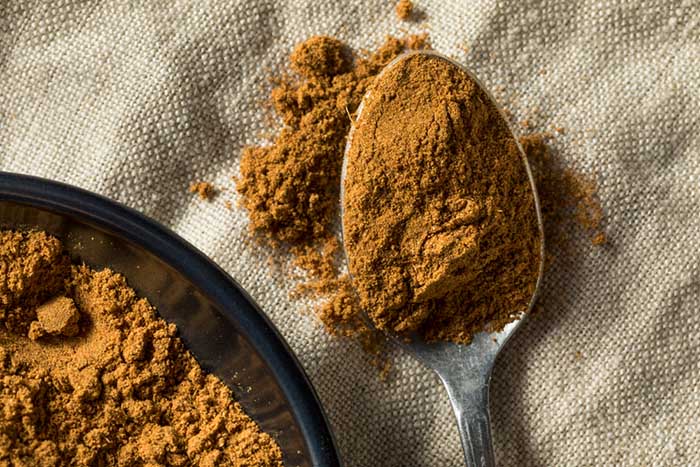
The last recommended substitution is five-spice powder. Despite the name, five-spice powder contains four core ingredients and can have more than five if you so choose. Five-spice powder is wildly popular in Chinese cuisine and includes cinnamon, fennel, star anise, and cloves. “Five-spice” refers not to five spices but to five flavors: sweet, bitter, sour, salty, and savory.
Because of the complex flavor profile, you shouldn’t substitute five-spice powder for cloves in many situations. For example, desserts and beverages may not be appropriate for salty, sour, or bitter flavors. Using five-spice powder as a substitution depends heavily on the recipe being made.
Savory dishes often benefit from using five-spice powder as a substitute. For example, meat-based dishes, robust vegetable medleys, and dishes like sweet potatoes or casseroles are all strong candidates for five-spice powder.
Because so many spices are included in five-spice powder, you often don’t need to include other ingredients. However, if you’re using it for something that primarily features sweetness, consider adding cinnamon to bolster the warmth of the spice or nutmeg to bolster the sweetness!

